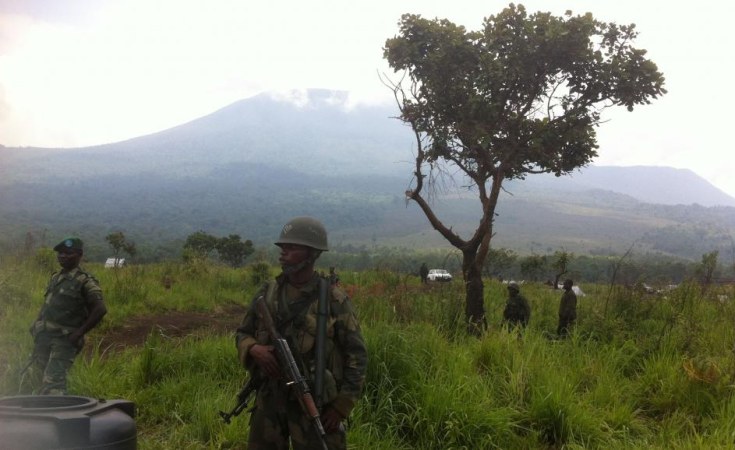Comment — I was left puzzled when I heard that Kenya that failed miserably to pacify Somalia, has now sent its army to fight M23 rebels in the DRC. A million questions have been generated by the decision.
The first question is why Kenya alone? How did Kenya reach this decision to put the boots on the ground in the DRC? What's Kenya's overt or covert motive? What are the terms of its assignment? Who allowed Kenya into the DRC? Is it the only possible solution left for the East Africa Community? Is this what the DRC sought to achieve in the EAC? How does it benefit from its membership despite the fact that its contribution----if maximumly and reasonable exploited----is bigger than all other EAC members put together? Does the EAC know this and pretend not to? How can we put sense into the EAC?
There are clearly many more questions than answers, which indicates that the DRC conflict isn't as easy as one can think, and neither can it be resolved militarily. The EAC needs to devise, talk, and think about how to address this protracted conflict.
Again, why's the EAC or any of its members using iniquitous methodologies to address the conflict? Methinks... It's because of coloniality if not the greed to use intervention as pretext of fleecing and robbing the resources in the DRC that've always motivated all criminals, local and foreign, to start wars.
For, if the EAC were decolonialised, it would see the conflict in any of our region or in any African so-called country---thanks to being created by our colonisers---as an African problem instead of a particular country's.
Why are Africans unable to see such a clear and simple matter? Who benefit from such self-inflicted wars? We condemn our colonisers for dividing and the partition of us and our regions that they curved into fickle and feeble states, yet we are blinding taking pride in it without underscoring the fact that we're harming ourselves.
When the allegations continued that Rwanda is supporting M23 and was followed by Kenya announcing that they are sending an army to deal with it, I didn't get it. Don't Kenya, Rwanda, and the DRC know who benefits from this warmongering? If they don't, I'll help them.
Only colonial agents, namely our local elites and politicians and their masters do know who benefits.
If we're truly decolonised, why don't we view ourselves as Africans instead of Congolese, Rwandans, Ugandans, and so forth. When will we decolonise our minds and open our inner eye to see such a simple and realistic means of emancipating ourselves instead of continuing being our own enemies?
For example, how much money is Kenya going to burn in the DRC and what for? Why hasn't Kenya learned from Somalia? Doesn't the EAC and Kenya know that if the EAC is united to form one country, al-Shabaab will lose the pretext of fighting? Imagine, if all EAC members could send their armies to fight either al Shabaab or the M23, what would happen?
The money we spend on fighting and killing each other is enough to unite our 'fake countries' and our people.
We should stop the situation of Africans fighting each other to control the resources to vend to their masters in the West. The West produces weapons and sells to them and in the end get their resources at a throwaway price!
Why is Kenya more interested in putting boots on the ground and not unitiing the region wherein such toxic ethnic divisions will die naturally?
Why is Rwanda that is feeling threatened by Interahamwe not convince others to unite and form one meaningful and powerful country known as the United Countries of East Africa (UCEA) or the United People of East Africa (UPEA) if not the United East Africa (UEA)?
If the EAC unification is to be realised, the group of nations should be able to sanction a country that goes against its rules. And if need be, invade and neutralize such a country so that it can test its medicine.


